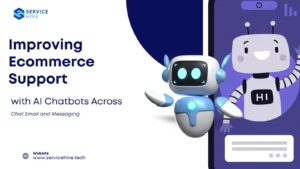
Improving Ecommerce Support with AI Chatbots Across Chat Email and Messaging
Improving Ecommerce Support with AI Chatbots Across Chat Email and Messaging Introduction If you run an ecommerce business today you
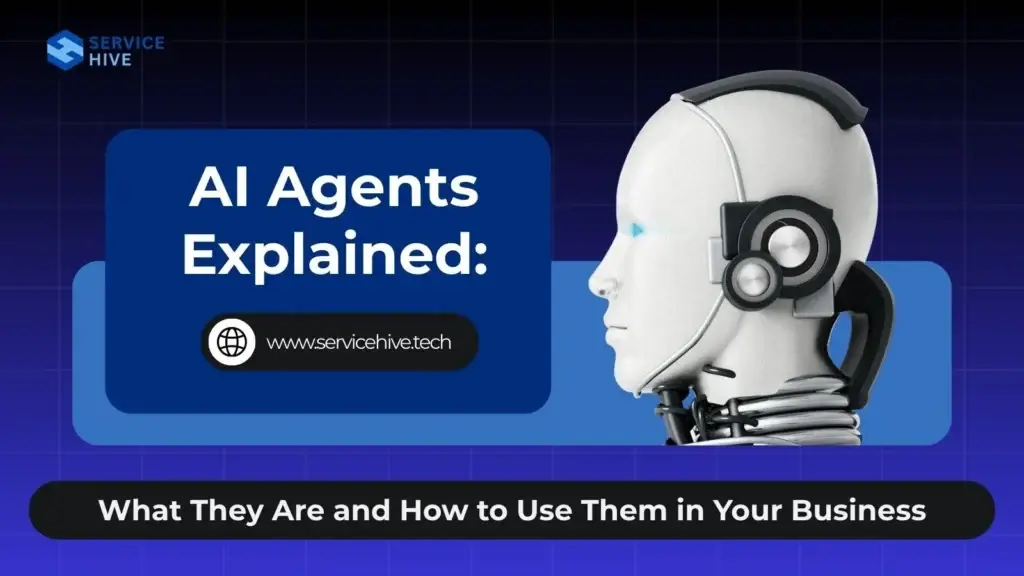
Table of Contents
Introduction to AI Agents
Artificial Intelligence (AI) has transformed the way businesses operate, and AI agents are at the forefront of this revolution. From automating repetitive tasks to enhancing customer experiences, AI agents are becoming essential tools for businesses of all sizes.
According to McKinsey’s AI report, nearly 50% of companies now integrate AI into at least one business function, showcasing the rapid adoption of intelligent automation.
If you’re looking to integrate AI solutions into your own business, you can explore tailored services offered by Service Hive, a professional platform providing innovative digital transformation solutions.
What Are AI Agents?
An AI agent is a software program designed to act autonomously, analyze data, and perform tasks based on given goals. Unlike traditional software, AI agents can learn, adapt, and make decisions.
A great example is OpenAI’s ChatGPT, which uses advanced natural language processing (NLP) to interact with users intelligently, going far beyond pre-programmed chatbots.
For businesses wanting to leverage AI for growth, Service Hive offers end-to-end support in deploying cutting-edge solutions.
How AI Agents Work
Reactive vs. Proactive AI Agents
For deeper technical insights, Stanford University’s AI research provides detailed papers on agent-based models.
Key Components of AI Agents
Benefits of Using AI Agents in Business
A Gartner report highlights that businesses using AI-driven automation see a 30% improvement in operational efficiency.
To explore solutions tailored for your industry, check out Service Hive’s AI services.
Types of AI Agents
Rule-Based Agents
Follow strict instructions; useful for structured processes like workflow automation.
Learning Agents
Adapt over time by analyzing data and improving their responses.
Conversational AI Agents
Chatbots and virtual assistants that interact with customers using natural language.
For practical applications, HubSpot’s guide on AI chatbots explains how conversational AI is transforming customer support.
Practical Business Applications of AI Agents
Customer Service
AI chatbots handle FAQs, complaints, and provide 24/7 support.
Sales & Marketing
Agents recommend products, personalize emails, and qualify leads.
Operations & Automation
Automate inventory management, scheduling, and reporting.
HR & Recruitment
AI screens resumes, automates scheduling, and assists in onboarding.
According to PwC’s AI report, businesses adopting AI see measurable ROI in marketing, customer service, and recruitment.
To implement these solutions effectively, Service Hive provides customized strategies for businesses ready to scale with AI.
Steps to Implement AI Agents in Your Business
For implementation strategies, MIT Sloan Management Review offers research-backed insights on adopting AI responsibly.
Common Challenges and How to Overcome Them
For compliance and data security, EU AI Act overview provides guidelines for ethical AI use.
The Future of AI Agents in Business
As AI evolves, AI agents will become more autonomous, predictive, and human-like. Businesses that embrace them early will gain a competitive advantage in efficiency and customer engagement.
For further exploration, IBM’s AI agent guide details how organizations are leveraging AI agents in real-world scenarios.
If you’re ready to take your business to the next level, explore Service Hive’s AI-driven solutions.
FAQs about AI Agents
Q1: What industries use AI agents the most?
A: Industries like retail, healthcare, finance, and logistics are leading adopters.
Q2: Can AI agents replace human employees?
A: Not entirely—AI agents complement humans by handling repetitive tasks.
Q3: How much do AI agents cost to implement?
A: Costs vary depending on complexity, but cloud-based solutions make them affordable.
Q4: Are AI agents safe to use?
A: Yes, provided you follow security best practices and data protection laws.
Q5: What’s the difference between AI agents and chatbots?
A: All chatbots are AI agents, but not all AI agents are chatbots. Some handle backend operations.
Q6: How can small businesses use AI agents?
A: Start with customer service bots, automated marketing, and scheduling assistants.
Conclusion
AI agents are no longer futuristic concepts—they’re practical tools reshaping business operations today. By understanding what they are, how they function, and the steps to implement them, businesses can harness their power for greater efficiency, customer satisfaction, and growth.
If you want professional AI solutions tailored to your business, visit Service Hive and explore their dedicated AI services.

Improving Ecommerce Support with AI Chatbots Across Chat Email and Messaging Introduction If you run an ecommerce business today you
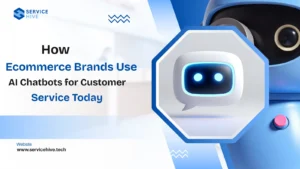
How Ecommerce Brands Use AI Chatbots for Customer Service Today If you run or manage an ecommerce brand today you
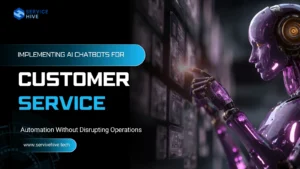
Implementing AI Chatbots for Customer Service Automation Without Disrupting Operations If you are a business owner or founder, chances are
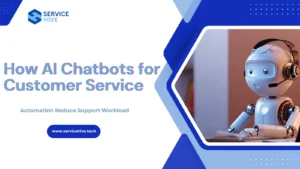
How AI Chatbots for Customer Service Automation Reduce Support Workload Introduction If you are a founder or operations lead, customer
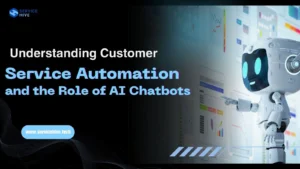
Understanding Customer Service Automation and the Role of AI Chatbots introduction If you are a business owner or founder, you
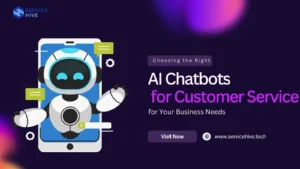
Choosing the Right AI Chatbots for Customer Service for Your Business Needs Introduction If you run a growing business today